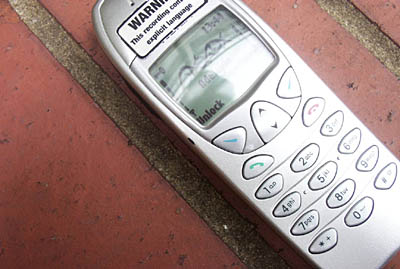Blocked telephone numbers, and the not answering of them
There seems to be quite a strong mentality these days that one shouldn't answer phone calls that come from blocked numbers -- that is, phone numbers with their caller ID suppressed. I find this interesting. I did a bit of Googling, and I've discovered heaps upon heaps of people who refuse to answer them, often on entirely vague or misguided grounds. I have a number of plausible theories for why people do this, some of which can be combined together: 1. They're expecting bad news. Or they owe money. While it's probably better to answer a telephone call from a debt collector than have them come knocking on your front door, I can at least understand the logic behind avoiding the call.
2. In the '90s, prior to the ACMA Do Not Call Register being introduced to Australia, there was a strong predilection for telemarketers to use blocked numbers when calling. A lot of these companies would also employ computer systems that would automatically dial from lists of numbers, confirming a number's validity when someone answered. These culled lists of numbers-that-get-answered would then be sold on to other telemarketing companies for a sizeable profit. Since the introduction of the DNC Register, it's illegal for telemarketers to call, period, let alone use blocked numbers. That's not to say that a scad few don't choose to break the law and call anyway, but the odds have reduced significantly. Charities and other organisations that are immune to the DNC Register are required to have their numbers visible to the receiver, so that removes them from the equation.
3. Psycho exes, drunk friends, whatnot. You can opt for your own telephone number to be made silent/blocked/private. Some handsets differentiate between blocked numbers and private numbers. Dialing 1-8-3-1 before the recipient's number will temporarily make your Australian phone number into a blocked number, so it's entirely possible to prank call people in this fashion without having a prior arrangement with your telco. In the scenario of these types of calls, I can once again understand the decision to not answer.
There are another couple of things I'd like to add to this inconclusive report:
• Many businesses, particularly doctors and large agencies (to give only two examples) use blocked numbers for a perfectly practical reason. Doctors want to be able to contact their patients to deliver news or test results, but they don't need the patient to be able to call them back on their own personal desk phone with every little itch and malady. That's why there's a receptionist and a system to make appointments. Agencies with call centres use blocked numbers because their staff are often trained in specific tasks (such as performing a data fix on client accounts, for example) and only need to contact the public for specific information. There is no reason that the recipient of the call should ever need to contact the staff member again, because the staff member is not trained to help with general enquiries. It would be a waste of the company's resources to make public the staff's individual extension numbers, because the phones would then be ringing with calls that could not be acted upon by those answering them.
• "If you need to contact me, I have the right to know who you are". Fair enough, but why don't you ask them when you answer the phone? If I was calling from a number that you wouldn't recognise, what would make you answer that number in contrast to no information at all? You can always hang up.
My work calls me from blocked numbers. That's a pretty good reason to answer them. But maybe that makes me unique.
Ring ring.
Follow-up, August 2013: Answers to common search queries relating to this article:
Question: why shouldn't i answer calls from blocked number Answer: There is absolutely no reason why you should avoid answering calls from a blocked number. (Provided you're not avoiding a stalker or dangerous ex or calls from a utility company that wants your money in exchange for a service they've already provided you. In the latter case, perhaps you should just pay your bill. Or arrange a payment plan. Something like that.)

